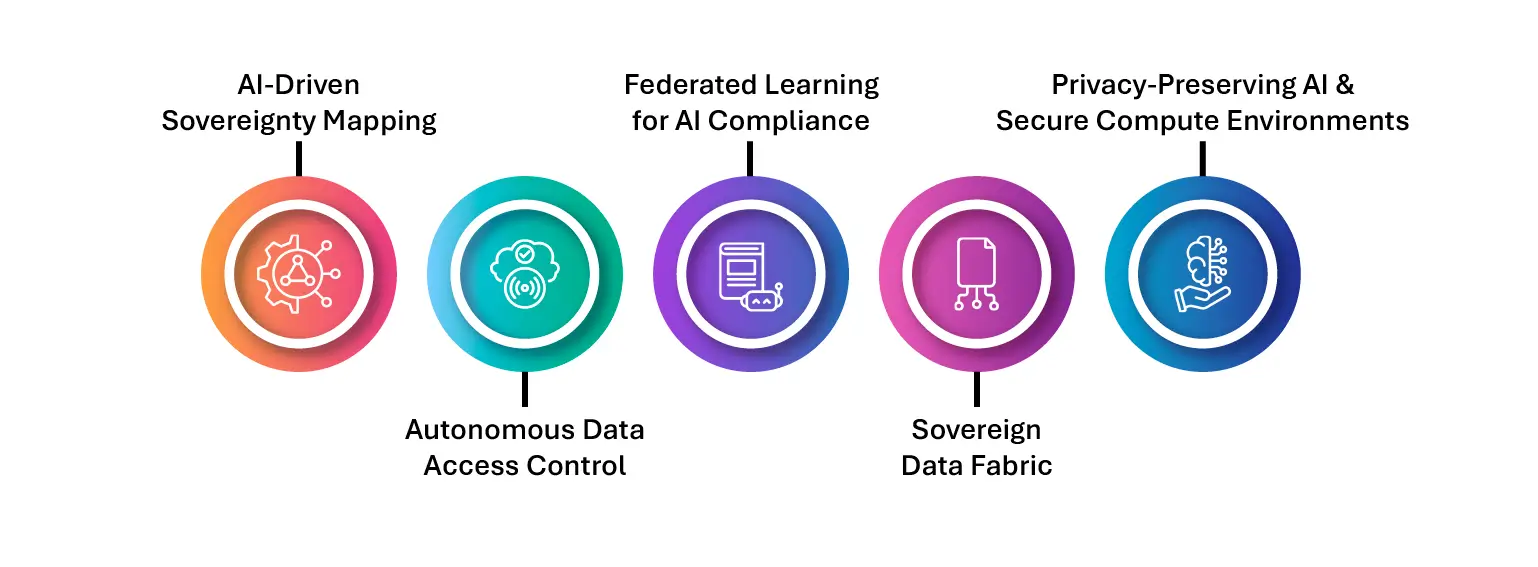Data is no longer just an enterprise asset—it has evolved into a global currency, a geopolitical weapon, and the foundation of economic supremacy. In today’s AI-driven landscape, governments worldwide are redrawing the lines of digital ownership, shifting from open data flows to strict localization mandates. The result? A $600 billion global regulatory wave of data sovereignty laws, shaping not just compliance but the future of competitive advantage.
For enterprises, sovereignty is no longer a box to check—it’s a boardroom-level risk that can define market survival. Missteps in compliance don’t just lead to multi-billion-dollar fines—they can trigger operational shutdowns, forced market exits, and severe reputational damage. Just look at TikTok, which continues to battle bans and heightened scrutiny across major economies due to sovereignty concerns.
However, the challenge isn’t just about meeting legal requirements. The real question is: Are businesses treating data sovereignty as a constraint when it could be their most powerful asset?
The Fragmented Regulatory Maze: A Roadblock to Innovation and Growth
The global regulatory landscape is no longer just fragmented—it’s a battleground for digital sovereignty, with over 150 countries enforcing distinct, often contradictory data protection laws that are reshaping business operations. By 2026, more than 70% of global GDP will be generated in countries with stringent data localization mandates, forcing enterprises to rethink data strategies. Nations like China, Russia, and India demand that companies store and process data within their borders, while regions like the EU and Brazil impose rigid cross-border data transfer restrictions, with penalties reaching 4% of global revenue. Meanwhile, the U.S. operates on an industry-specific model, where regulations like HIPAA for healthcare, GLBA for finance, and state laws like the CCPA create additional complexity, while countries such as Australia and India tighten scrutiny on foreign cloud providers.
The fractured regulatory landscape isn’t just a compliance headache—it’s a direct threat to AI innovation and global competitiveness. Large Language Models (LLMs) and AI systems thrive on vast, diverse, and globally sourced datasets, yet accelerating data sovereignty mandates are breaking these data pipelines, leading to fragmented, biased, and less effective AI models that struggle to scale beyond their regulatory silos. By 2027, it’s projected that over 60% of AI models will be constrained by regional data laws, limiting their ability to learn from global contexts and diminishing their competitive edge. Meanwhile, the cost of compliance is skyrocketing—rising by over 30% in the last five years—as enterprises pour billions into legal teams, governance frameworks, and AI-specific compliance measures just to maintain operations.
But sovereignty laws are not just about protecting data about security and compliance—it’s fundamentally redrawing the global technology landscape and reshaping competitive dynamics. Sovereignty-driven regulations, like India’s Digital Personal Data Protection Act (DPDPA), are not just defensive mechanisms but strategic levers to foster domestic innovation, drive economic self-sufficiency, and reduce reliance on foreign technology providers. The response from tech giants is telling—Microsoft, Google, and AWS are racing to deploy “sovereign cloud” solutions, localized infrastructures that comply with country-specific regulations while offering businesses a way to balance sovereignty with scalability. But this is just the beginning. By 2026, more than 75% of organizations handling sensitive data will be forced to adopt geo-specific data strategies, breaking away from the traditional model of centralized, borderless cloud computing. This decentralization marks a fundamental shift in how businesses architect their AI models, data platforms, and infrastructure strategies.
The Next Big Shift: Unified Data Governance in a Fragmented World
A reactive, country-by-country approach to sovereignty compliance is a losing battle. It’s inefficient, expensive, and only increases regulatory risks. The old way of tackling compliance—reactively adjusting to each new law—just doesn’t cut it anymore. Instead, businesses need a smarter, unified approach to data governance—one that doesn’t just check compliance boxes but actually drives agility and innovation. By 2028, over 85% of organizations handling sensitive data will integrate AI-driven regulatory intelligence into their governance models, ensuring proactive, real-time compliance across jurisdictions. This shift requires a fundamental rethinking of governance architectures—moving beyond traditional frameworks to autonomous, AI-enabled sovereignty enforcement.
Key Components of a Sovereignty-First Governance Model:

- AI-Driven Sovereignty Mapping: Regulatory landscapes are no longer predictable. Enterprises must leverage AI-powered regulatory intelligence engines that dynamically map sovereignty laws, assess compliance risks, and automate enforcement, reducing regulatory exposure and potential fines by up to 60%.
- Autonomous Data Access Control: The rise of zero-trust security architectures is redefining compliance. Role-Based Access Control (RBAC), geo-fencing, and AI-driven adaptive authorization ensure data access remains context-aware, dynamically governed, and jurisdictionally compliant, mitigating insider threats and unauthorized cross-border transfers.
- Federated Learning for AI Compliance: AI development and sovereignty laws don’t have to be at odds. Federated learning is emerging as a game-changer, allowing AI models to train on decentralized local datasets while sharing insights globally—ensuring compliance without sacrificing AI efficiency. By 2030, federated learning is expected to power over 50% of AI training workflows in regulated industries.
- Sovereign Data Fabric: The era of fragmented governance models is over. A sovereignty-first data fabric integrates policy automation, real-time regulatory monitoring, and intelligent data routing across multiple jurisdictions—ensuring enterprises can meet sovereignty mandates without compromising performance or innovation.
- Privacy-Preserving AI & Secure Compute Environments: AI sovereignty must be built on a foundation of privacy-first innovation. Advanced techniques such as homomorphic encryption, differential privacy, and confidential computing allow AI to extract insights without ever exposing raw data, balancing compliance with cutting-edge AI development.
By implementing these strategies, businesses can move beyond compliance as a burden and position sovereignty as a driver of trust, security, and competitive advantage.
Turning Sovereignty into a Competitive Edge with Zubin
Data sovereignty isn’t just a compliance mandate—it’s a defining factor in how businesses manage risk, security, and innovation in an AI-driven world. The organizations that remain reactive, treating sovereignty as a legal hurdle, will find themselves entangled in costly regulatory battles and operational inefficiencies. However, those who take control—leveraging AI-driven governance, automation, and intelligent data management—will gain a competitive edge in the evolving digital economy.
This is where Data Dynamics’ Zubin transforms the sovereignty challenge into an opportunity. Zubin’s AI-powered, policy-driven data governance framework gives enterprises full visibility, control, and compliance enforcement across global data ecosystems. With real-time sovereignty mapping, automated access controls, and federated governance, organizations can ensure that data is stored, processed, and accessed in strict alignment with regulatory mandates—all without disrupting business agility or innovation.
By integrating sovereignty-first governance with self-service data management, Zubin empowers enterprises to proactively enforce compliance, reduce risk exposure, and optimize data movement across hybrid and multi-cloud environments. It enables businesses to securely train AI models across distributed data sets, leverage privacy-enhancing technologies, and maintain control over data sovereignty without sacrificing efficiency.
Rather than reacting to ever-evolving regulations, organizations need a proactive, intelligent approach to data sovereignty—one that orchestrates data security, compliance, and business agility in a single, unified framework. Zubin empowers enterprises with the tools they need to navigate the complexities of modern data governance, ensuring that sovereignty is no longer a roadblock, but a strategic advantage.
Is your organization ready to take control? To learn more about how Zubin can help click here.






